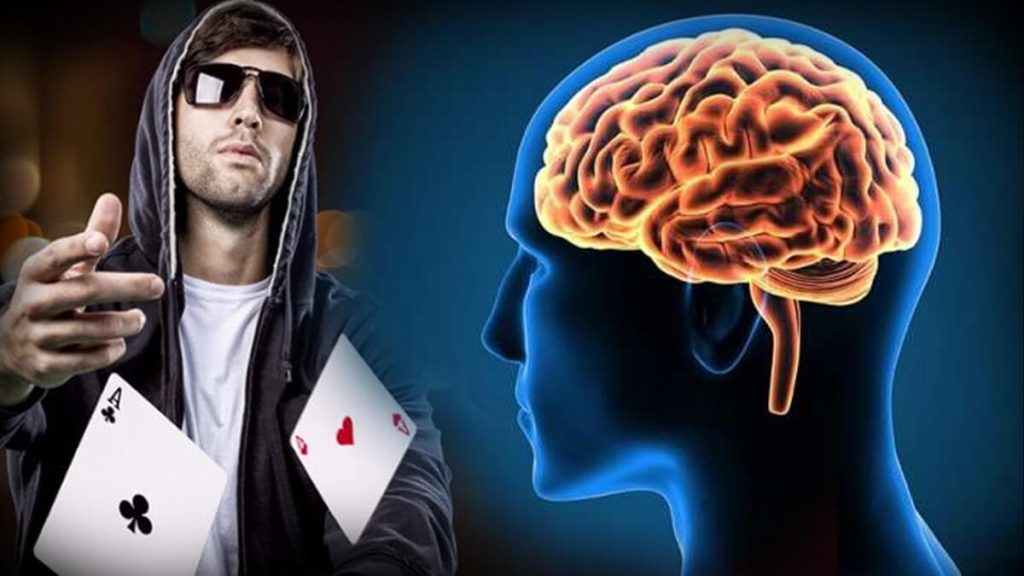
Gambling is a complex activity that encompasses various psychological factors
The allure of risk and reward, coupled with the potential for excitement and the pursuit of fortune, makes gambling a captivating endeavor for many individuals. However, it is essential to delve into the psychology behind gambling to comprehend why some individuals develop addictive behaviors. This article explores the psychology of gambling, shedding light on the cognitive and emotional processes that underlie risk-taking, reward-seeking, and the potential for addiction
1. The Gambler’s Fallacy:
One aspect of the psychology of gambling is the gambler’s fallacy. This cognitive bias leads individuals to believe that past events or outcomes in gambling will influence future outcomes. For example, a person may assume that after a series of losses, a win is more likely to occur, which is not necessarily true. Understanding this fallacy helps to dispel misconceptions and highlights the importance of rational thinking in gambling.
2. Risk Perception and Thrill-Seeking:
Gambling inherently involves risk-taking, and individuals’ perception of risk can vary greatly. Some individuals are naturally inclined towards sensation-seeking and seek out the excitement and thrill that gambling provides. These individuals may be more likely to engage in high-risk gambling activities and show a higher tolerance for potential losses.
3. Reinforcement and Reward:
The anticipation and experience of rewards play a crucial role in the psychology of gambling. Gambling activates the brain’s reward system, triggering the release of dopamine, a neurotransmitter associated with pleasure and reinforcement. This reinforcement mechanism reinforces the behavior, making individuals more likely to repeat it in pursuit of the pleasurable experience associated with winning.
4. Illusion of Control:
The illusion of control is a psychological phenomenon often observed in gamblers. It refers to the belief that individuals have a greater degree of control over the outcomes of their gambling activities than they actually do. This belief can manifest in behaviors such as superstitions, rituals, or employing strategies, even in games of pure chance. The illusion of control may contribute to the persistence of gambling behaviors, as individuals feel empowered and believe they can influence the outcome.
5. Biases and Cognitive Distortions:
Various cognitive biases and distortions can influence gambling behaviors. These biases include the availability heuristic (overestimating the frequency of past wins), the confirmation bias (seeking information that confirms pre-existing beliefs about gambling), and the near-miss effect (perceiving a near-miss as being closer to a win). These biases can lead individuals to make irrational decisions and contribute to the persistence of gambling behaviors.
6. Escapism and Emotional Regulation:
For some individuals, gambling serves as a form of escapism or emotional regulation. It provides an outlet to temporarily escape from stress, anxiety, or negative emotions. The excitement and engagement in gambling activities can act as a distraction, offering a brief respite from real-life challenges. However, this reliance on gambling as a coping mechanism can lead to the development of addictive behaviors.
7. Pathological Gambling and Addiction:
While most individuals can gamble responsibly, a subset develops gambling-related problems or pathological gambling, also known as gambling addiction. Pathological gambling is characterized by persistent and recurrent gambling behavior, leading to significant negative consequences in various areas of life. Factors such as genetic predisposition, underlying psychological disorders, and environmental influences contribute to the development of gambling addiction.
8. Responsible Gambling Practices:
Understanding the psychology of gambling is crucial for promoting responsible gambling practices. Encouraging individuals to develop realistic perceptions of risk, providing accurate information about the odds, and fostering self-awareness are essential strategies for preventing excessive gambling and addiction. Effective responsible gambling programs should incorporate education, self-exclusion options, and support for individuals seeking help.
Conclusion:
The psychology of gambling encompasses a range of cognitive, emotional, and behavioral factors that influence individuals’ gambling behaviors. Understanding the interplay between risk, reward, and addiction provides valuable insights into the allure and potential pitfalls of gambling. By promoting responsible gambling practices and fostering awareness of the psychological mechanisms at play, we can strive for a safer and healthier gambling environment.


